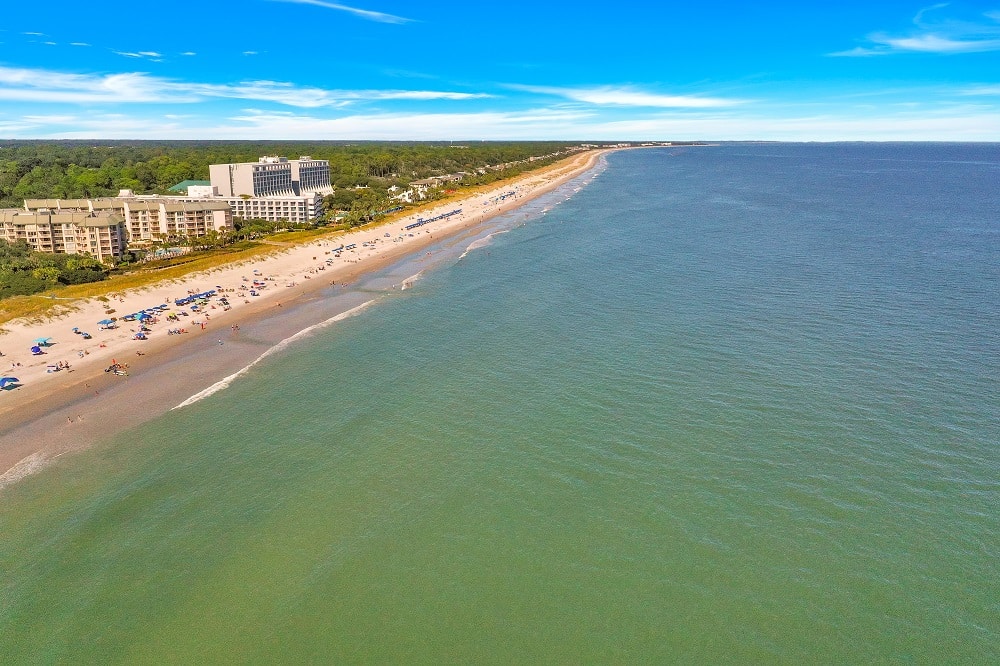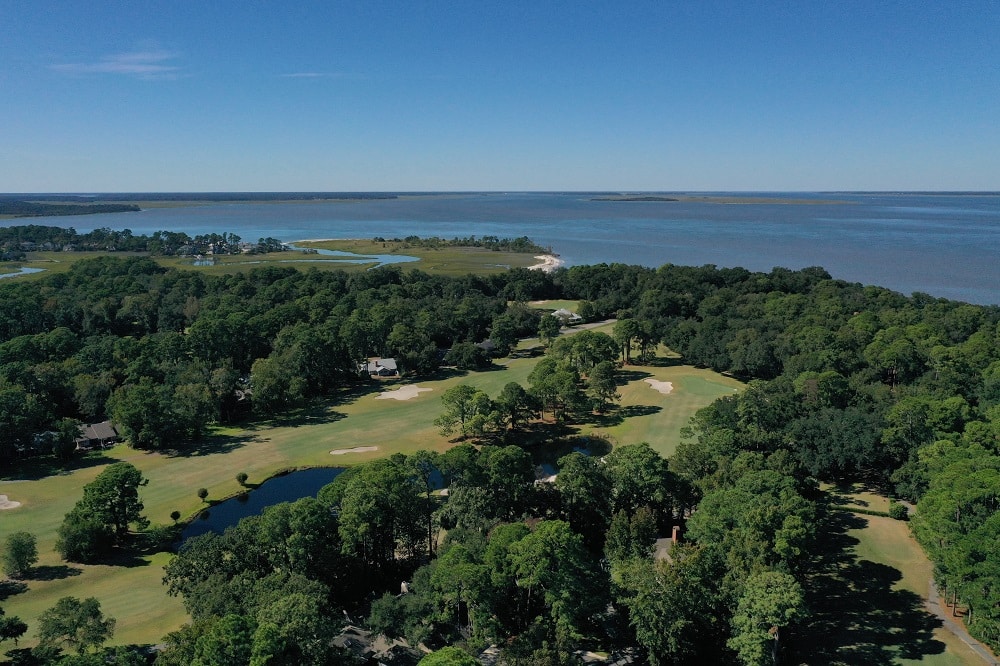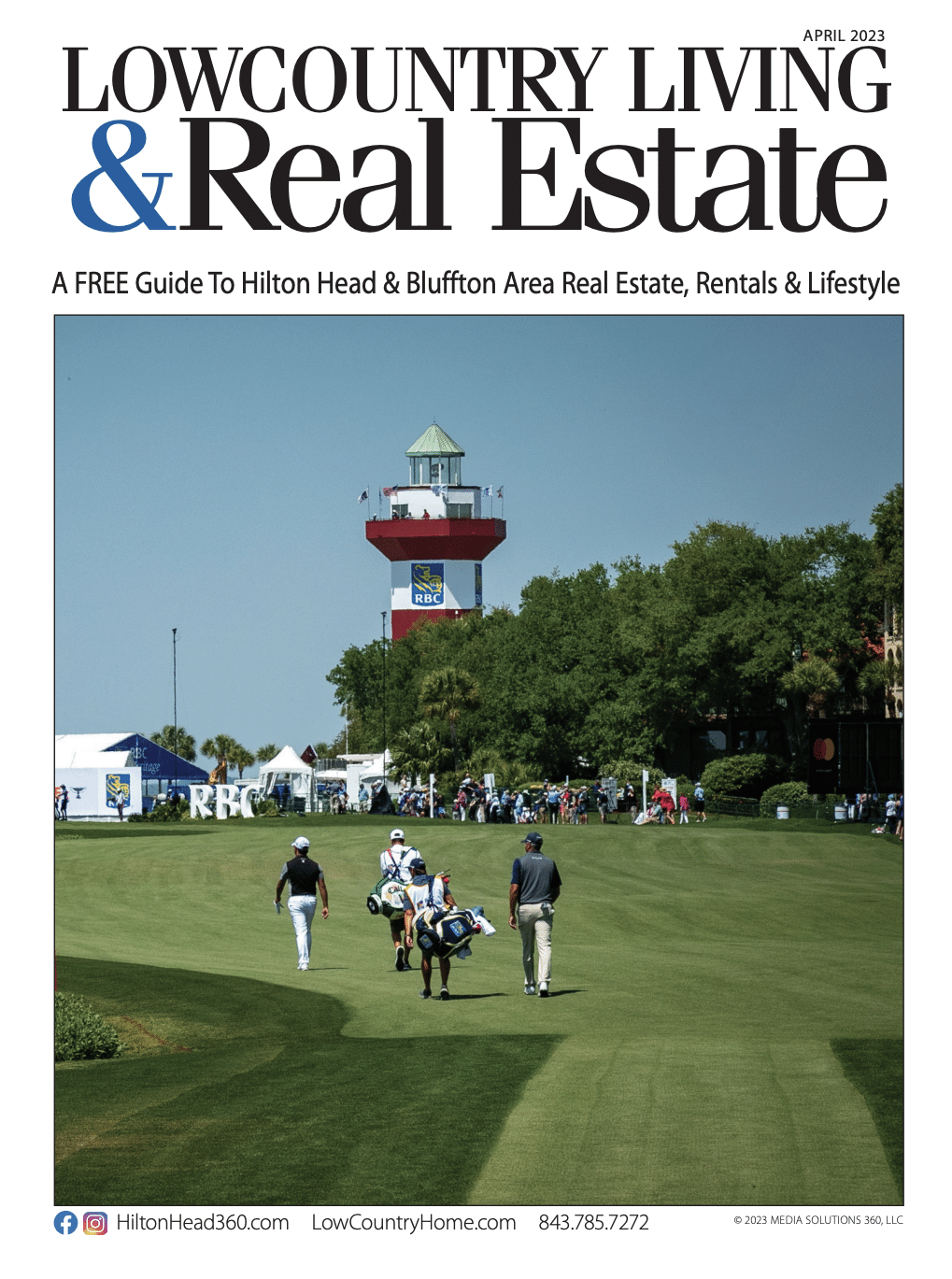Forget Florida—South Carolina Low Country Is the Top U.S. Luxury-Home Market According to Barrons

U.S. luxury home buyers looking for more space, a strong return on investment—plus an enjoyable place to live—might want to consider the booming Southern waterfront communities Hilton Head Island, Bluffton and Beaufort, South Carolina.
The metro area ranked No. 1 in the fourth quarter of 2022 on The Wall Street Journal/Realtor.com Emerging Housing Markets Index, released Wednesday, shooting up from 12th place the previous quarter. The region, often referred to as the Low Country, attracts buyers interested in amenities such as boating, golf and miles of beaches—and the warm weather to match.
“What has happened in the last few years, particularly during the height of the pandemic, is that these areas became kind of safe havens for people—mostly from the Northeast, although I have worked with more people from California in the last two years than the entirety of my career,” Ms. Donaldson said. “You can get a gorgeous oceanfront home on Hilton Head for far less … I have one for sale right now at $6.25 million and this would be a $30 million property in other parts of the country.”
Despite the shift in mortgage rates and the housing market that occurred in the second half of last year, Ms. Donaldson said that demand is still far outpacing supply.
“In the last seven days, there have been 90 new properties listed,” she said on a call earlier this week. “One hundred and fifty have gone under contract [in the same time period]. So we’re running a deficit.”
Although there are certainly signs of a faltering luxury market across the country, several regions have bucked the trend, according to Danielle Hale, Realtor.com’s chief economist.
“While some areas are seeing luxury prices slip, the emerging luxury markets remain relatively in-demand, and the price of homes in the top 10th percentile continues to climb in these areas, even though there are more homes available for sale,” she said.
The Emerging Housing Markets Index identifies regions of the country that offer strong future upside potential and a nice lifestyle for homeowners each quarter. The luxury segment of the index used housing data for the top 10% of 60 metropolitan areas for the ranking. The rankings factored in information on the real estate market and other economic measures from the fourth quarter of 2022, analyzing a number of indicators to rank the most active luxury housing markets. Indicators include growth in housing supply and demand; median listing prices; a cost of living measure; small businesses; local property taxes; amenities; unemployment; wages; and the share of foreign-born residents—who contribute to the economic vitality and diversity of the area.

The Top 10
Several destinations in the top 10 were in the Sun Belt, the lower half of the continental U.S. reaching from Florida to California. The entire region has been a hotbed of activity over the pandemic, with remote work allowing buyers to seek out sunny locales with an outdoor lifestyle and lower cost of living.
“Southern destinations including several beach markets topped the list, but we also have mountains and cities across a fairly broad swath of the U.S.,” Ms. Hale noted.
Indeed, all of the top migration destinations last year were in the South, according to new data from the National Association of Realtors (NAR).
Florida was the fastest-growing state in 2022, according to the report, released this week. The state saw a nearly 2% bump in population last year, and it was the first time since 1957 that its population growth was the fastest in the country.
Texas, North Carolina and South Carolina followed the Sunshine State with the most net domestic migration gains in 2022, the report said.
The trend was clear from the WSJ/Realtor.com index, as well, with four out of the top five cities in the South.
Coastal regions have been particularly popular, with metro areas such as Hilton Head; Charleston, South Carolina, which dropped from No. 2 to No. 8 last quarter; and Gulf Coast Florida destinations ranking in the Top 10.
“Hilton Head has a PGA tournament annually that follows the Masters [Tournament in Augusta, Georgia], and that’s a huge draw to the area,” Ms. Donaldson said. “But the truth is that people don’t really come to Hilton Head just for the golf. The bulk of people come for the beach, and we’ve got miles and miles of really pristine beaches.”
Indeed, the 12-mile-long island is the second-largest barrier island on the East Coast (New York’s Long Island is the largest), and the beaches are great for cycling and boating, the agent added.
It also has a relatively low income tax, especially appealing to incoming buyers who are retiring, as well as low property taxes, she said.
Taxes are very much top of mind for many Florida buyers, as the state has no income tax and relatively low property taxes. Two Florida destinations were high on the fourth-quarter index (down from three the previous quarter): The Tampa, St. Petersburg, and Clearwater metro area ranked No. 2, while the North Port, Sarasota and Bradenton region was No. 7.
These Gulf Coast locations offer a more laid-back lifestyle than bustling Miami, as well as the swaths of sand for which the state is famous. But with the devastation of Hurricane Ian in September, some Floridian transplants may be looking for a home in a place like Hilton Head.
“Many real estate agents will use the term ‘halfbacks’ because we have people who leave the Northeast and they go down to Florida and then they come half way back,” Ms. Donaldson explained. “What will often happen is If Florida gets hit by a big hurricane, people will come our way.”
Smaller cities also did well on the index, including the Nashville, Davidson and Murfreesboro area in Tennessee, which dropped from the No. 1 spot last quarter to No. 3; the Dallas-Fort Worth region, jumping to No. 4 from No. 9, and the Washington cities of Seattle, Tacoma and Bellevue, which shot to the No. 9 spot from No. 24.
Seattle, of course, is a well-known tech hub, but Dallas also has a significant start-up scene. Nashville’s tech scene is also growing, and all three cities offer a lower cost of living than in California’s Silicon Valley.
Speaking of which, the area of San Jose, Sunnyvale and Santa Clara—which comprise Silicon Valley—ranked sixth on the Index.
Two mountain towns rounded out the list: Boulder, Colorado, at No. 5, and Salt Lake City, Utah, in the 10th spot.

Going Forward
Because of a lack of inventory, it’s unlikely prices are going to drop in the U.S.
In Hilton Head, prices have been on the rise since the pandemic, with no signs of slowing.
“We’ve had a couple of oceanfront sales in excess of $10 million, which was a never-before experience,” Ms. Donaldson said.
“Oceanfront lot pricing has climbed to the $5 million mark in areas that allow short-term rentals, and unless we get more inventory, I just don’t see it coming down.”
That’s the case in many of the top spots on the index. Luxury agents across the country lament the lack of inventory because there are so few options for buyers, and the lack of new listings is keeping prices elevated.
In the coming year, markets will play a big role in consumer confidence for Americans, especially those of means.
“It’s going to be an interesting year going forward because mortgage rates are stabilizing and that’s helping the overall home sales trajectory,” Ms. Hale said. “But, in the luxury sector buyers still seem to be a little bit cautious, and a lot is going to depend on how the stock market plays out over the next year. Trends in the stock market don’t really have an effect on the overall housing market, but we do see an impact in the luxury market.”
The volatility of the stock market undermines buyer confidence for high-net-worth individuals, which is going to be reflected in the data, she continued.
“A lot is just going to be dependent on the overall stock market and economy,” she explained. “We’re at a turning point, so it’s much harder to predict than usual. So I think until [the financial situation] becomes clearer, we’re probably going to see a more sluggish luxury market.”
(Mansion Global is owned by Dow Jones. Both Dow Jones and Realtor.com are owned by News Corp. The Wall Street Journal is also owned by Dow Jones.)
This article originally appeared on Mansion Global.






